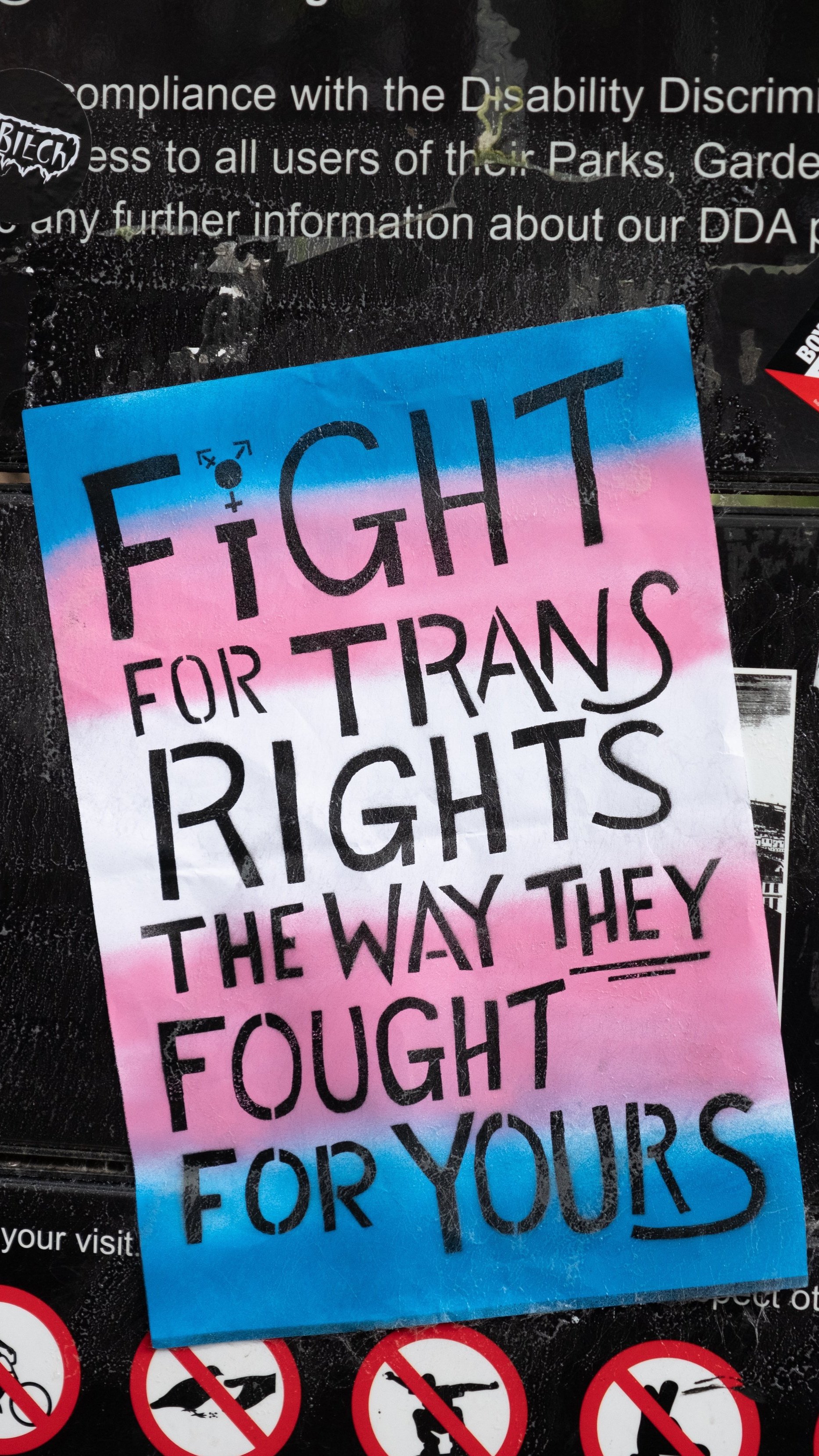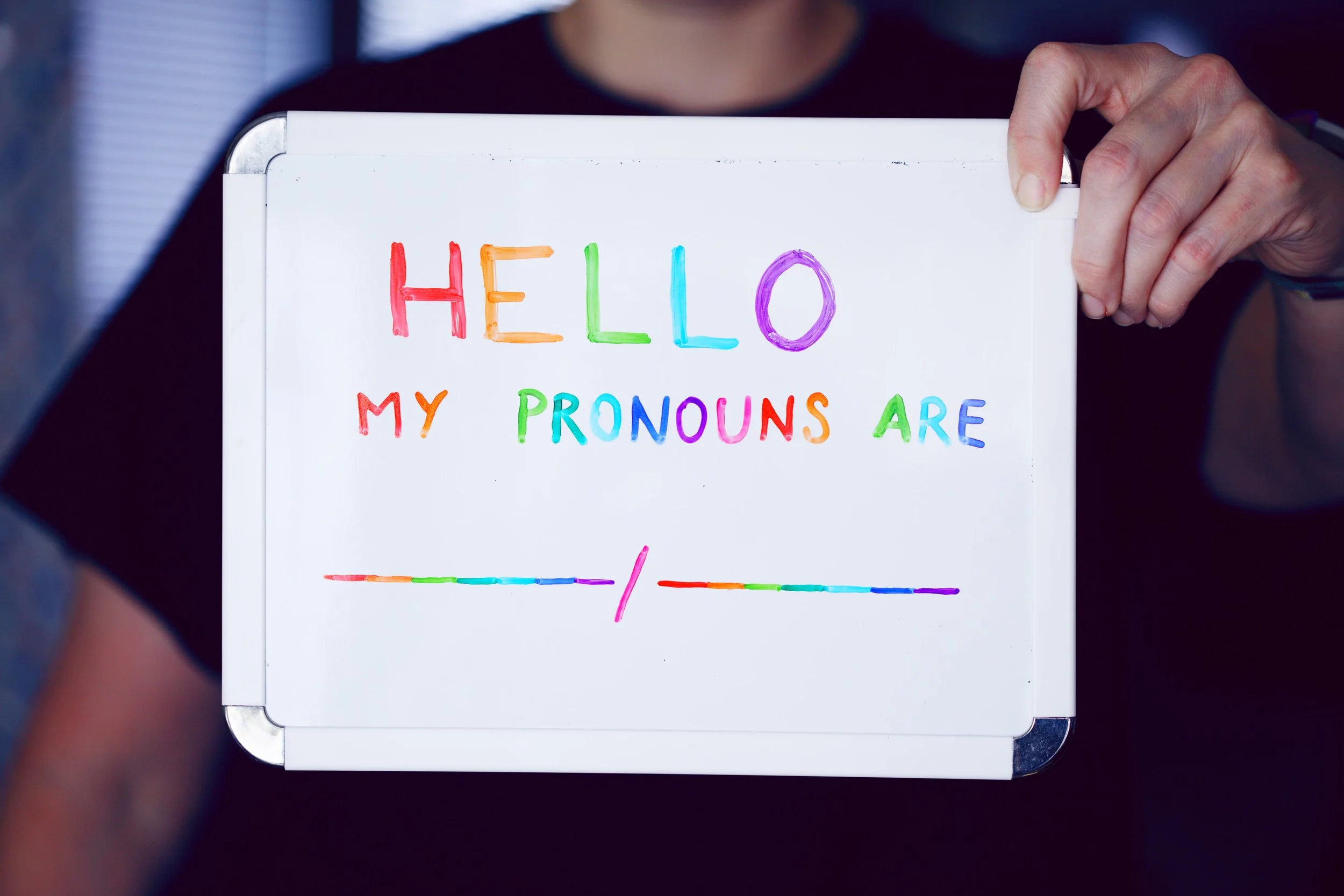Unlock the Gate! Gatekeeping of Transaffirming Care and Procedures
What is Gatekeeping Related to Trans Healthcare?
Gatekeeping is defined as “the activity of controlling, and usually limiting, general access to something” (Oxford Languages). In the trans community it specifically refers to medical and healthcare professionals enacting policies that inhibit a person’s ability to access transaffirming care. This kind of gatekeeping is not new.
It is also a significant problem for trans individuals seeking any form of affirming care. Even if the professional’s intentions are good (such as wanting to protect a client/patient from a “mistake”) or self-focused (such as not wanting to be sued) these barriers are detrimental to trans health.
Australia’s TransHub defines gatekeeping as what happens when “health professionals place unnecessary and unfair hurdles in the path of affirmative care, and require trans and gender diverse patients to prove who we are and that we really want or need access to medically affirming care.”
Gatekeeping Trans Affirming Care can Take Many Forms
Here are some examples of common gatekeeping actions the trans community faces when accessing healthcare services:
Refusing to take on trans or gender diverse clients
Requiring unnecessary steps in order to access gender-affirming care. i.e. requiring a psychiatrist or endocrinologist assessment
Delaying gender affirming care without a clear health-based reason
Such as “watchful waiting,” a term used in conversation practices
Engaging in any sort of conversion or aversion therapy
Not providing all information or answers as to why a particular decision was made
Requiring trans and other gender diverse clients to adopt a strict binary (male/female) identity
Requiring invasive examinations or testing in order to access care
Over-inflation of regret rates
Gatekeeping is Detrimental and Dangerous for Trans Individuals
There is a growing body of research pointing to these practices as dehumanizing and dangerous. These practices place a burden of proof upon trans individuals. It demands they justify and explain their lived experience to an outsider until that person is satisfied they are “trans enough.”
When placed beside other mental health struggles “enough” sounds as ridiculous as it is. No one is asked to prove they are “depressed” enough or “anxious enough” or “abused enough” to receive care.
The suicide rate among transgender individuals is the highest among all gender expressions and is most commonly due to lack of support from others (especially family) and lack of body/gender congruence (the ongoing burden of living in a body that does not match one’s internal sense of self).
Given this, gender affirming care is not only medically necessary, it is lifesaving. From a professional standpoint gatekeeping is also unethical.
Two articles published in The American Journal of Bioethics argue that facial feminization surgery is not cosmetic but is medically necessary and should thus be covered by health insurance, and to do otherwise is unethical. If you would like to read them both you can access them for free here and here.
This article in the American Psychological Association’s (ACA) publication Psychotherapy provides insight into the current standards of care (SOC) laid out by the World Professional Association for Transgender Health (WPATH), for better or worse. But it also posits that psychotherapy that assists the client in their transition – rather than gatekeeping or calling the shots – led to better outcomes.
Additionally, this article from Psychology of Sexual Orientation and Gender Diversity highlights the struggles of attempting to work with an uninformed therapist including the burden of education, gender avoidance, and gender repairing in addition to gatekeeping.
Resources Related to Personal Experiences of Gatekeeping
While we at Obsidian Counseling and Wellness are trans positive and happily support our trans clients whether their purpose in coming to us involves their transition journey or not, we cannot and should not speak for them. Here are a few resources that speak from personal experience with the medical gatekeeping of transgender care.
In 2016 the Journal of Adolescent Health published a first of its kind research article on the effects of gatekeeping on trans youth and their caregivers. It found that few trans youth “eligible for gender-affirming treatments actually receive them.”
Florence Ashley, a member of the law faculty at McGill University in Canada, provides a candid and insightful report on her experiences as a transwoman in Canada’s medical system.
Martin Hayes wrote for The Queen’s University Journal about the harm of baseless terms such as “transtrenders” and the “transmedicalists” who believe this notion.
Earlier this year American Scientist published an article highlighting the dangers of the current system and encouraging an informed consent model of care.
The Impact of Gatekeeping As Told By Trans Individuals
We spoke with two trans individuals about their experience with gatekeeping. Below is what they shared about their experiences:
Local Activist
We spoke with a local activist who asked to be anonymous about his experiences with gatekeeping during his on-going transition. He spoke about the difficulty of finding an affirming care team. He initially had to drive 1.5 hours one way on a weekly basis just to receive his hormone replacement therapy (HRT) which necessitated taking time off work on top of the cost of gas.
He also related to us the challenges in finding a surgeon to perform his mastectomy and spoke about doctors who refused to answer his questions until he booked an appointment only to then tell him “a flat out no.” This was after hours upon hours of calling offices and trying to use information from his insurance carrier that was years out of date.
Asha Ember
We also spoke with Asha Ember, an acquaintance of our therapist Kari Holman, to better understand her experience, as well. Here is some of what she shared with us:
“It's important to note my lived experience is my own…few people understand the magnetic pull of dysphoria, particularly at the beginning of transition. One day, you're not happy and there's nothing you can do about it, and you're used to that. It's like, "This life sucks, but it's my life," and you go numb. You don't even notice it happening with age. Pre-transition dysphoria is a lot like having a hand that's fallen so far asleep that you can stare at it and prod it, and for a moment part of your brain doesn't really accept it as a part of you.
“The dysphoria you feel when you come out is so much worse. It's like the moment you allow yourself to believe that you can change those things you once considered immutable about yourself, every single thing that prevents you from presenting becomes nightmarishly exaggerated or assumes an urgency that boarders on obsession (if not becomes an obsession). Like, one day I'm a dude who dresses in women's clothing and acts flamboyantly, and the next, I'm a really, really, really shitty woman. And it's awful.”
Informed Consent-Based Care as an Alternative
Informed consent-based care is an alternative model to gatekeeping that is growing in prominence. In this model care is inclusive, self-determined, and rights-based. If you want to read a solid article on the differences between and challenges to informed consent-based treatment and gatekeeping of trans clients please go here.
Now, it should be stated that informed-consent based care, like any model, is not perfect. It does not currently have guidelines on what to do if a healthcare professional has questions about this transperson’s ability to consent to treatment, such as unmanaged or poorly managed psychosis, schizophrenia spectrum disorder, or a memory disorder like Alzheimer’s or HIV dementia. This article from the International Journal of Medicine and this one from Psychiatric Services are two that take a look at this quandary.
However, this article from the South African Journal of Bioethics and Law argues the informed-consent model upholds the ethics of “do no harm” that is central to the mental health field better than the gatekeeping model. These ethics include respect for autonomy, non-maleficence, beneficence, and justice.
Advocate, Advocate, Advocate
If the three Ls of real estate are “location, location, location” then the three As here are advocate! Advocate! Advocate! Even when it is exhausting and frustrating it is the key to overcoming gatekeeping. It’s also helpful to have a trained professional in your corner to support you.
Consider Trans-affirming Therapy in Chicago, IL
The belief in the basic right and dignity of trans-affirming care is the reason our transgender specialist, Kari Holman and our other online therapists at our therapy practice based in Chicago, IL offer therapy directed at supporting you through every step of your gender exploration and transition journey via online therapy. We want to help you connect with yourself and begin healing from the comfort of your own home.
Take the steps below to get started:
Fill out a consult form here.
Meet with a trans affirming therapist to see if online therapy is a good fit.
Start connecting with yourself and experience the healing you deserve!
THERAPY SERVICES AT OBSIDIAN COUNSELING AND WELLNESS
When you work with a therapist at our counseling practice in the Chicago, IL area, you will be met with compassion and authenticity. The team at our therapy practice feels honored to help guide folks, including teenagers, along their healing process. Specifically, we help people in addressing anxiety, trauma, and work stress. One of our more unique services is yoga therapy, which can also be done using online sessions. We hope that you take the leap to begin counseling with us. You deserve it.




